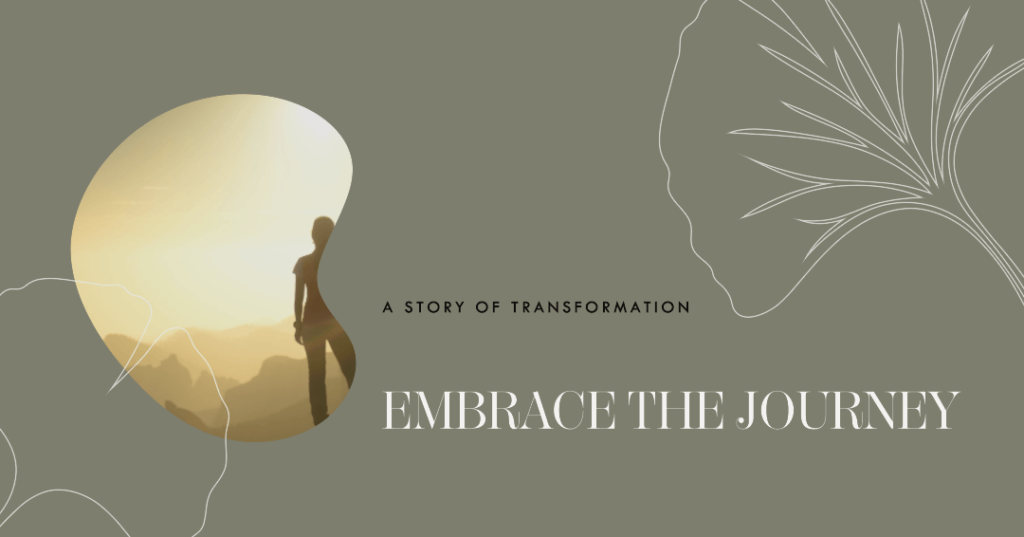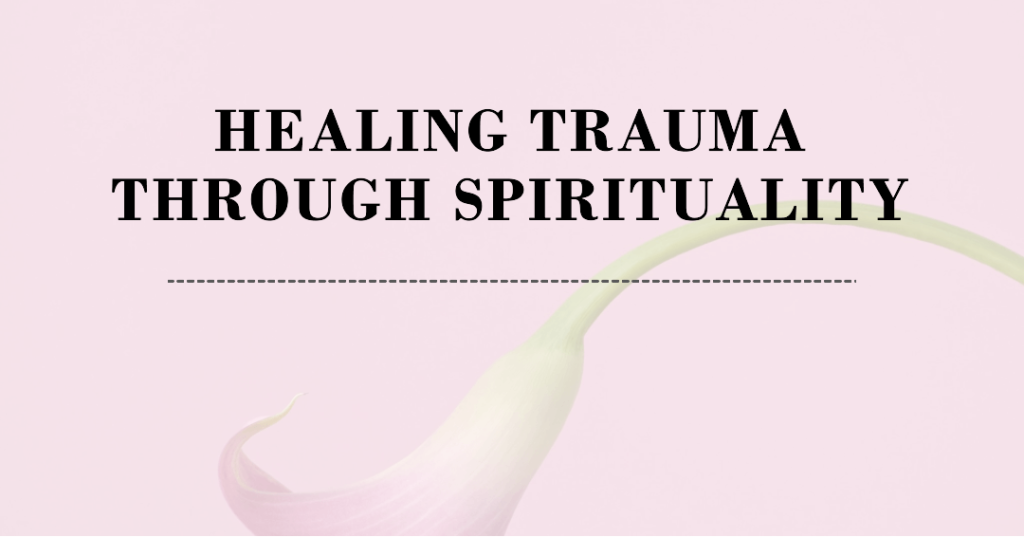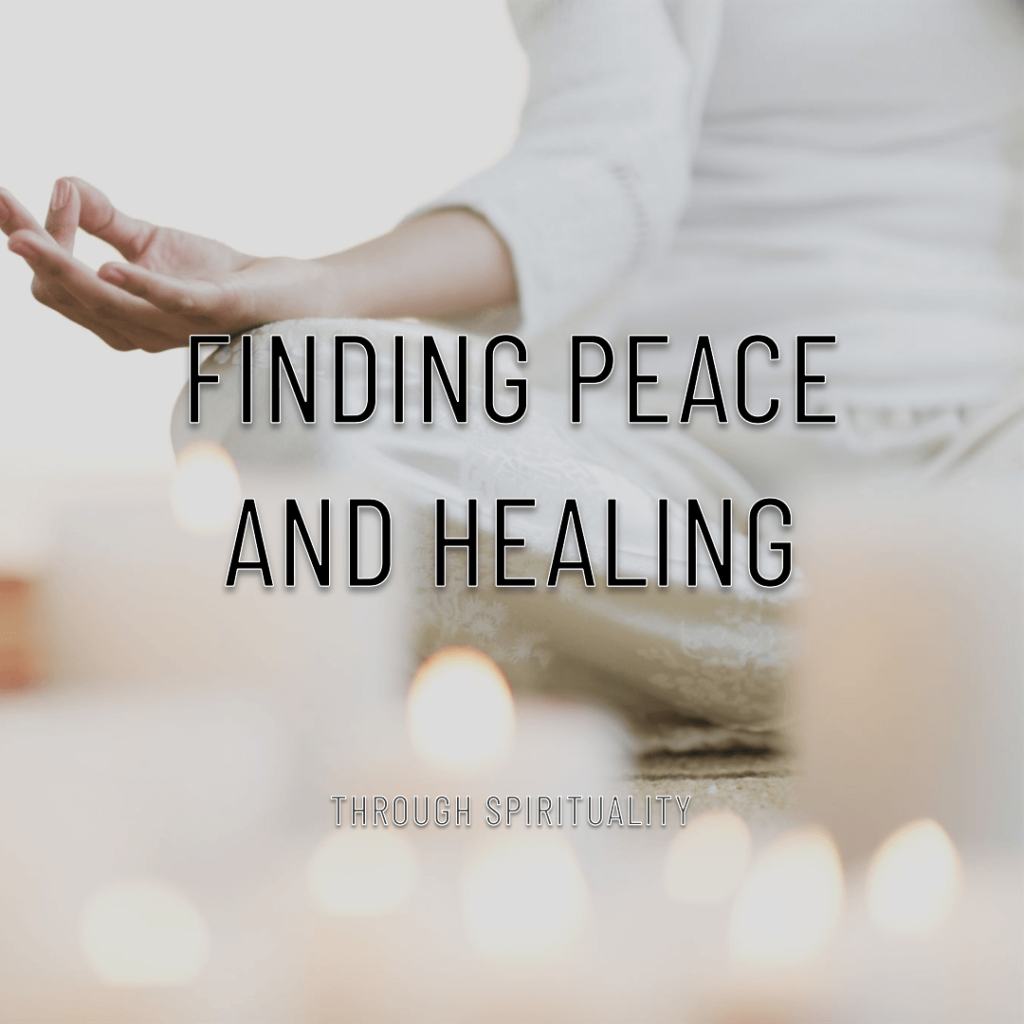A Journey of Transformation
Trauma is a word that carries weight in today’s society, often signifying deep emotional wounds that can profoundly impact an individual’s life. But how can one navigate the path to healing? In this blog post, we will explore the powerful intersection of trauma recovery and spiritual growth.
We’ll delve into how the journey towards spiritual evolution can aid in healing past wounds, shaping personal growth, and nurturing inner resilience.

The road to healing trauma is not a sprint, it’s a marathon that demands patience, self-compassion, and an acknowledgment of the need for support. Whether your trauma stems from a past event or a series of accumulated experiences, it’s crucial to recognize that healing is an ongoing process.
The first step is acknowledging the need for help and reaching out to a friend, family member, or professional who understands the complexities of trauma.
Using Spirituality to Overcome Trauma
Spirituality can be a potent tool for healing trauma. Connecting with something greater than ourselves, whether through prayer, meditation, or mindfulness practices, can provide solace and meaning.
Prayer, for instance, can reduce stress levels and enhance self-esteem by fostering a sense of purpose in life. Meditation offers respite from the turmoil within, redirecting our focus towards positive aspects of life and away from past misfortunes. Forgiveness, an integral aspect of spiritual growth, enables us to release bitterness and move forward from painful experiences.

As a trauma survivor, you might feel trapped in a cycle of pain and fear, hindering your ability to fully experience the present moment. But the spiritual journey of healing offers a transformative pathway. Traumatic events can cause profound agony, but they can also unveil a new world of strength and inner peace. By delving into your own soul, you can transcend the negativity that trauma brings and embark on a journey towards empowerment.
Finding Peace and Healing Through Spirituality
Amid the turmoil, it’s easy to feel lost and overwhelmed. You might wonder where to turn or who might understand your struggles.
Seeking support from individuals who share similar experiences can provide clarity and hope for the future.
Connecting with others who have walked the path of trauma recovery can offer a sense of community and shared understanding, helping you find peace by knowing you’re not alone.
Trauma takes a toll not only on the mind but also on the body. Incorporating spiritual practices can be instrumental in healing emotional wounds.

Peter Levine’s concept of “the spiritual journey of healing from trauma” underscores the power of spirituality in overcoming the effects of trauma.
By embracing practices like meditation, mindfulness, and energy healing, you can release the grip of trauma on your mind and body, allowing room for healing and growth.
Integrating Spirituality into the Healing Process of Trauma

Spirituality can enact a profound transformation during recovery from trauma. Prayer, meditation, and mindfulness practices can guide your journey towards self-discovery and resilience.
Forgiveness, whether directed towards others or yourself, can be a catalyst for healing and growth. Self-love, as empirically demonstrated, plays a pivotal role in finding happiness and balance within.
Integrating spirituality into the healing process is about understanding the origins of your pain and finding meaning within it.
This understanding shapes your perspective, helping you break free from old patterns and preventing future negativity.
Meditation, often a key component of spiritual practice, allows you to cultivate self-awareness, connecting you to deeper levels of consciousness where inner peace resides.
In the aftermath of trauma, it’s easy to feel trapped by the weight of your experiences. But embracing spirituality can be a transformative act of self-care. Spiritual growth involves compassion for oneself and others, allowing you to navigate challenges with grace. By embracing all aspects of your being, even the painful ones, you create space for healing and transformation.
Conclusion
In a world where trauma can feel all-consuming, the journey of healing through spirituality offers hope and empowerment. As you travel this path, remember that healing takes time and that seeking support is a sign of strength, not weakness.
The convergence of trauma recovery and spiritual growth can guide you towards a place of inner peace, resilience, and self-discovery. Through prayer, meditation, forgiveness, and self-love, you can unlock the transformative power of spirituality and pave the way for a brighter, more connected future.

I want to extend a heartfelt thank you for taking the time to read this blog post. I hope it was informative, insightful, and most importantly, useful to you. Mental health is an important topic that affects us all, and I’m grateful for the opportunity to share my thoughts with you.
If you have any thoughts or comments, I encourage you to leave them in the comment box below. Your feedback is essential to me and helps me create content that is tailored to your needs.
If you found this post helpful, please subscribe to my newsletter for more resources and updates on mental health. You can also reach out to me via email if you have any questions or just want to chat. Remember, taking care of your mental health is important, and you are not alone.
Leave a Reply